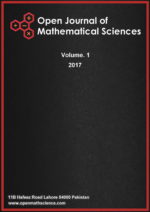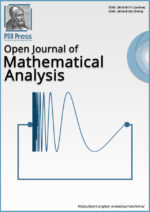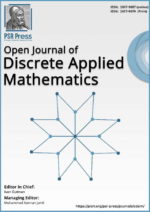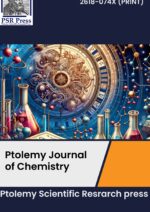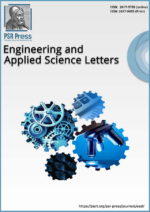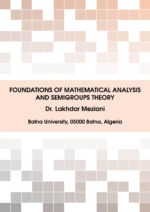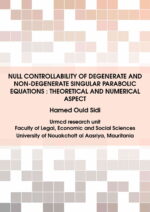Ptolemy Scientific Research Press (PSR Press)is a highly regarded publisher of scientific literature dedicated to bringing the latest research and findings to a broader audience. With a focus on cutting-edge research and technology, Ptolemy Scientific Research Press offers a range of publications catering to professionals, researchers, and student’s needs. Whether looking for information on the latest breakthroughs in physics, biology, engineering, or computer science, you can trust Ptolemy Scientific Research Press to deliver insightful, accurate, and engaging content. With its commitment to quality, accessibility, and innovation, Ptolemy Scientific Research Press is an essential resource for anyone interested in science and technology.

Latest Published Articles
OMS-Vol. 4 (2020), Issue 1, pp. 220 – 239 Open Access Full-Text PDF
Siriwan Pawai, Tararat Khamsang, Aiyared Iampan
Abstract: In this paper, we introduce the notions of a weak pseudo-valuation, a \(0\)-weak pseudo-valuation, a weak valuation, a near pseudo-valuation, a near valuation, a pseudo-valuation, and a valuation and induce a pseudo-metric without triangle inequality, a quasi pseudo-metric, a pseudo-metric, and a metric by some these mappings on a UP-algebra. We also prove that the binary operation defined on a UP-algebra is uniformly continuous under the induced metric by a valuation in some conditions.
OMS-Vol. 4 (2020), Issue 1, pp. 211 – 219 Open Access Full-Text PDF
C. Velmurugan, R. Kalaivanan
Abstract: In this study, we discussed the existence of golden ratio in Brihadeeshwarar temple, Tanjavur, Tamil Nadu, India, built in 1010 AD. It is listed on the UNESCO’s world heritage site of the Chola temples in southern India. This temple represents an outstanding creative achievement in the architectural idea of the pure form of the Dravida temples. Golden ratio has great influence in architecture, mathematics and art. We analyzed existence of the Golden ratio in structural design of Tanjavur Brihadeeshwarar temple prakaram. We used the Phi Grid and Phi Spiral software to measure the golden ratio and verified our result.
OMS-Vol. 4 (2020), Issue 1, pp. 200 – 210 Open Access Full-Text PDF
Daniel A. Romano
Abstract: As a generalization of KU-algebras, the notion of pseudo-KU algebras is introduced in 2020 by the author (D. A. Romano. Pseudo-UP algebras, An introduction. Bull. Int. Math. Virtual Inst., 10(2)(2020), 349-355). Some characterizations of pseudo-KU algebras are established in that article. In addition, it is shown that each pseudo-KU algebra is a pseudo-UP algebra. In this paper it is a concept developed of pseudo-KU algebras in more detail and it has identified some of the main features of this type of universal algebras such as the notions of pseudo-subalgebras, pseudo-ideals, pseudo-filters and pseudo homomorphisms. Also, it has been shown that every pseudo-KU algebra is a pseudo-BE algebra. In addition, a congruence was constructed on a pseudo-KU algebra generated by a pseudo-ideal and shown that the corresponding factor-structure is and pseudo-KU algebra as well.
EASL-Vol. 3 (2020), Issue 2, pp. 40 – 53 Open Access Full-Text PDF
Rasul Rasuli
Abstract: The purpose of this paper is introduce the notion of intuitionistic fuzzy subgroups with respect to norms (\(t\)-norm \(T\) and \(s\)-norm \(S\)). Also we introduce intersection and normality of them and investigate some properties of them. Finally, we provide some results of them under group homomorphisms.
EASL-Vol. 3 (2020), Issue 2, pp. 32 – 39 Open Access Full-Text PDF
Saad Ihsan Butt, Mehroz Nadeem, Ghulam Farid
Abstract: In this paper, we establish several integral inequalities including Caputo fractional derivatives for exponential \((s,m)\)-convex functions. By using convexity for exponential \((s,m)\)-convex functions of any positive integer order differentiable function some novel results are obtained.
EASL-Vol. 3 (2020), Issue 2, pp. 19 – 31 Open Access Full-Text PDF
Anders S.G. Andrae
Abstract: The main problems with several existing Information and Communication Technology (ICT) power footprint investigations are: too limited (geographical and temporal) system boundary, overestimation of power saving potential in the next decade, assume that historical power use can predict future global power use in the next decade despite unprecedented data traffic growth, assume that Moore´s law relation to digital circuitry can continue “forever” and that no problems with extra cooling power will occur for several decades. The highly variable outlooks for the future power consumptions depend on “starting values”, disruptions, regional differences and perceptual estimations of electricity intensity reductions and data traffic increase. A hugely optimistic scenario – which takes into account 20% annual improvement of the J/bit in data centers and networks until 2030 is presented. However, the electric power consumption of the present ICT scope will be significant unless great efforts are put into power saving features enabling such improvements of J/bit. Despite evident risks, it seems though that planned power saving measures and innovation will be able to keep the electricity consumption of ICT and the World under some kind of control. The major conclusion is based on several simulations in the present study – that future consumer ICT infrastructure cannot slow its overall electricity use until 2030 and it will use more than today. Data traffic may not be the best proxy metric for estimating computing electricity. Operations and J/operation seem more promising for forecasting and scaling of bottom-up models.

